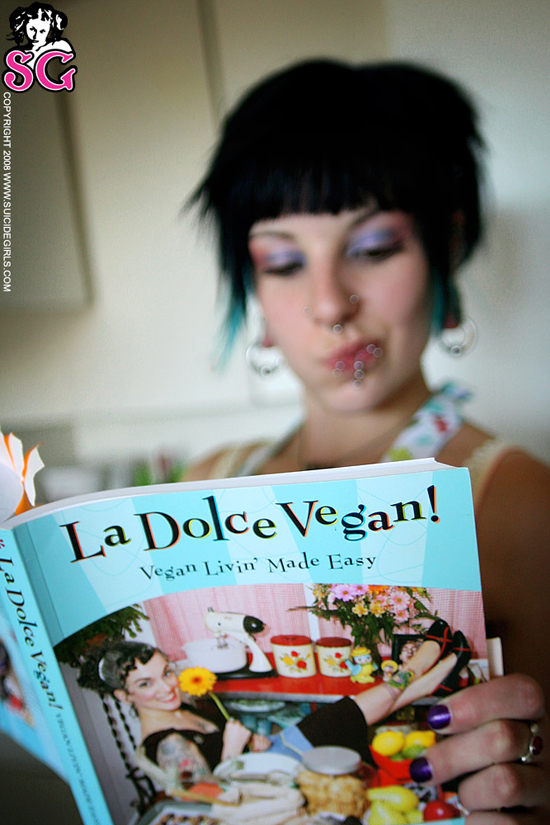
By Malloreigh
I started trying to write this article about ex-vegans over a week ago, but I found it really difficult. I couldn’t come up with a clean explanation for why I think people give up on veganism. I’ve talked about this with people for most of the seven years I’ve been vegan, and yet no pattern has made itself evident. In the process of trying to write the article, I interviewed about ten people who once followed a vegan lifestyle and don’t any longer; their answers were varied, sometimes defensive, sometimes apathetic, often apologetic.
I found the whole thing really disheartening, to tell you the truth, but I’m going to try to write about it as intelligently as I can. I hope to inspire some thought and dialog about this topic – for my own interest as well as that of anyone else who’s wondered about this.
Some of the people I talked to cited health reasons for giving up veganism. Every once in a while I’ll meet someone who wasn’t getting all the nutrients they needed on a vegan diet, and usually they express that they understand they just weren’t putting in the effort they should have. It’s difficult to eat a balanced diet even if you do consume animal products, but there are a few special challenges for vegans. This has become easier as fortified vegan products like non-dairy milks, cereals, and proteins have become more commonly available in supermarkets.
Most of the former vegans I talked to, however, weren’t concerned about their health. Some were just lazy, didn’t want to learn to cook. Some said that veganism was too expensive – and it certainly can be if you subsist mostly on specialty vegan products like faux meats and cheeses. Most of them, however, weren’t concerned about this, either.
A common theme among these former vegans is that they didn’t want to be freaks. They didn’t want to be “the vegan” – always having to explain and defend their lifestyle choices. They didn’t want to make the people around them uncomfortable, and they didn’t want to inconvenience their friends and partners. The endless onslaught of swimming against the current was, for these ex-vegans, the hardest part.
One longtime-vegan friend wrote, “It’s not that my values changed really, just my sticking to them.” After years of being the odd one out, and experiencing difficulty while in a relationship with an omnivore, another said that he “just didn’t think it mattered anymore.”

I’m vegan because I want to save the world. All of the former vegans I talked to felt this way once too – that animals’ lives are worth more than their monetary value, that it’s easy to make small changes that are less environmentally destructive, that veganism helps to promote sustainable food systems and reduce suffering in the world. But after years of watching everyone around you eat whatever they want without concern for the consequences of their food choices, it can sometimes feel like the struggle is not worth it. How much difference can one person make? Is it worth depriving oneself in the face of so much apathy?
It’s always difficult to swim against the tide; recycling used to be a weirdo, hippie, inconvenient thing to do too. Being vegan means missing out on certain parts of an indulgent “normal life” – things like 3 AM pizza and nachos, or holiday meats. But staying true to what you believe in is an admirable, strong, beautiful thing to do, even if it means missing out on certain indulgences. It is difficult, yes, but many things worth doing are. And people should – and do – respect people who are passionate about what they believe in.

